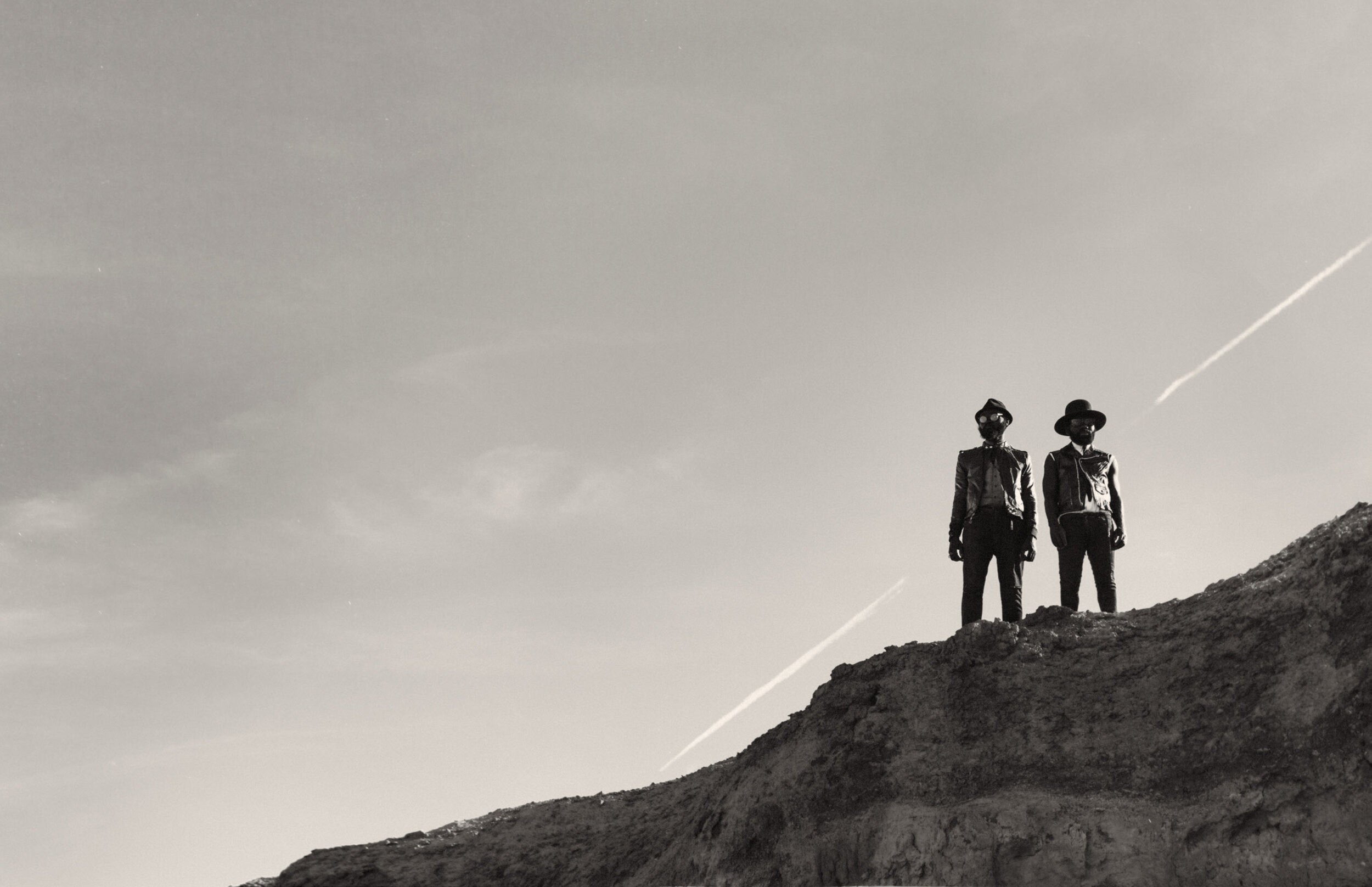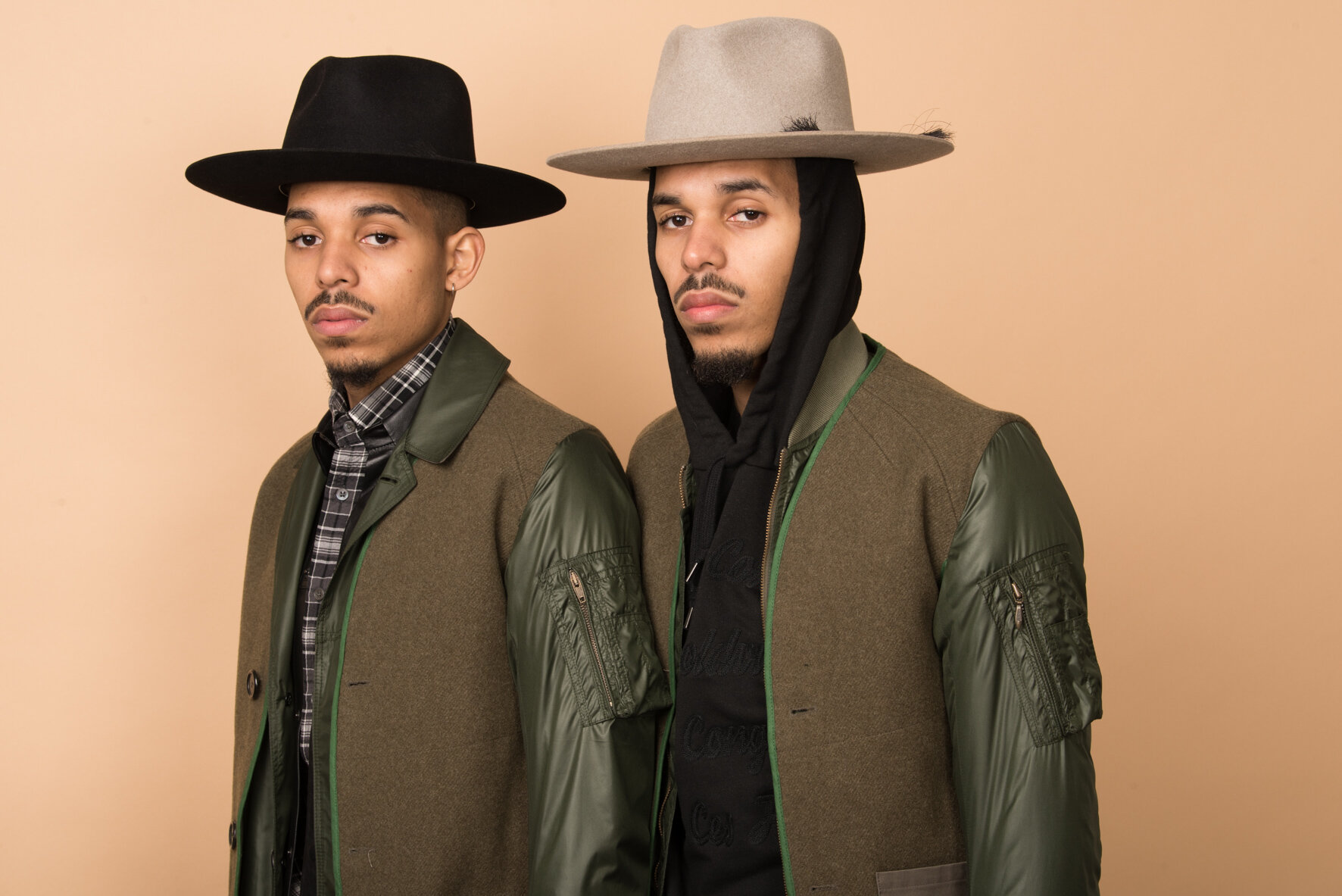Autumn / Winter 2017
Bills were gangs of teenagers that dressed in cowboy outfits and went against the current political view.
BILLISM TROPICAL COWBOY
Bills were gangs of teenagers that dressed in cowboy outfits and went against the current political view. It provided a street-level counterpart to the more rented and overtly political anti-colonial struggle that was then being fought. It was hard being a youth in Kinshasa in the 1950s. Known as Leopoldville at the time, the capital of Congo was under the control of Belgian colonialists. Segregation meant there were no-go zones after nightfall and unemployment levels were high.
Photography: David Pattinson
Model: Twins Sam and Noel
From 1957 to 1959 half a dozen movie theaters opened in the "African" neighborhoods in Léopoldville. The majority of Léopoldville's population was under 20, They were particularly drawn to eastern movies, and "Billism" began to incorporate many of the motifs into their lives. Refusing to be cowed, these young men were looking for a role model. They found one in Buffalo Bill For these Congolese youths, the cowboy was a symbol of victory, of empowerment and liberation, and many bought into the image whole heartedly.
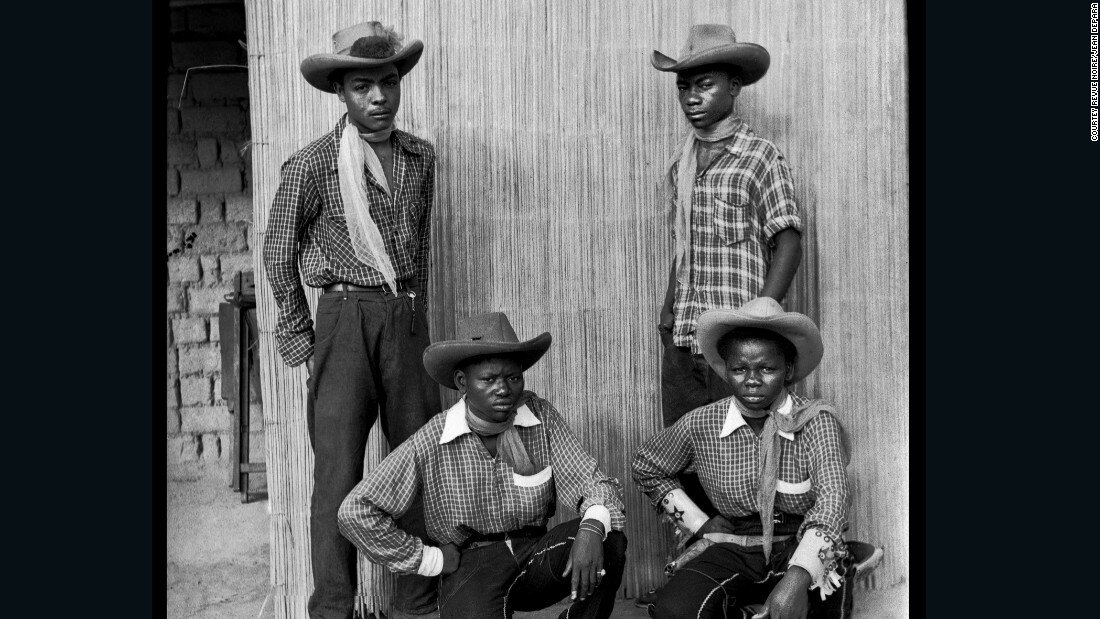
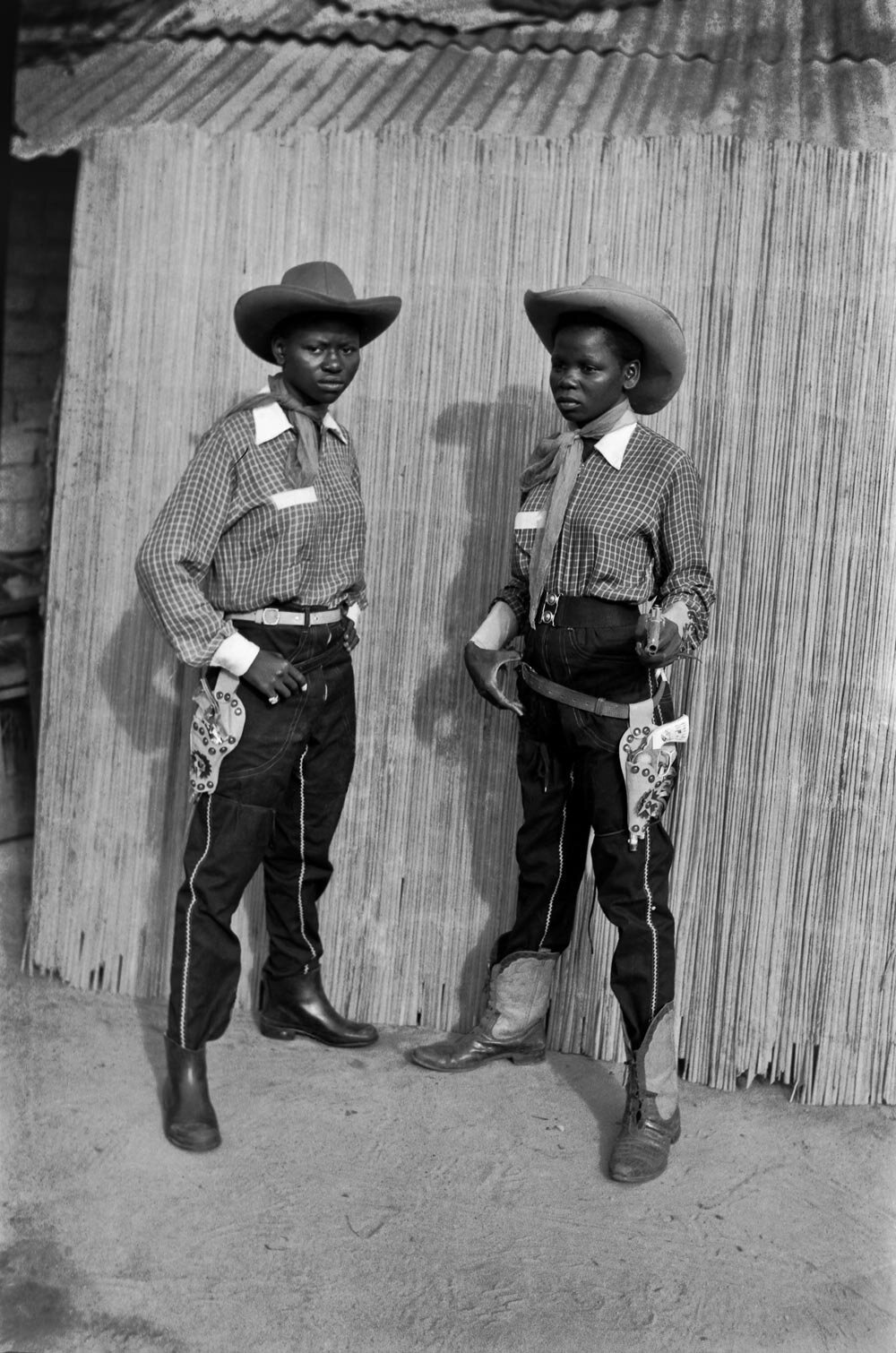
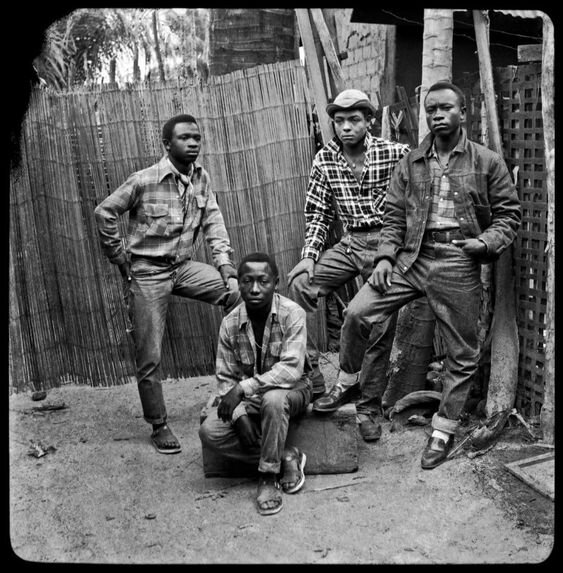
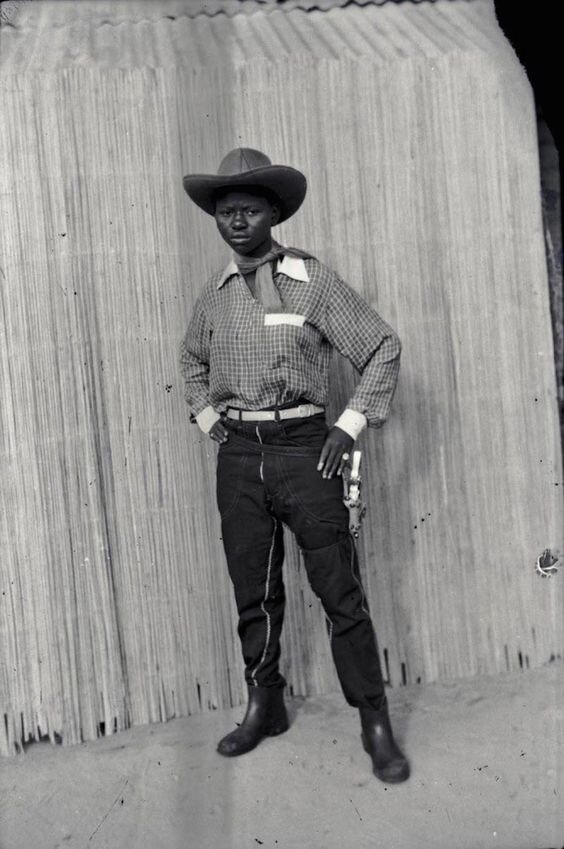
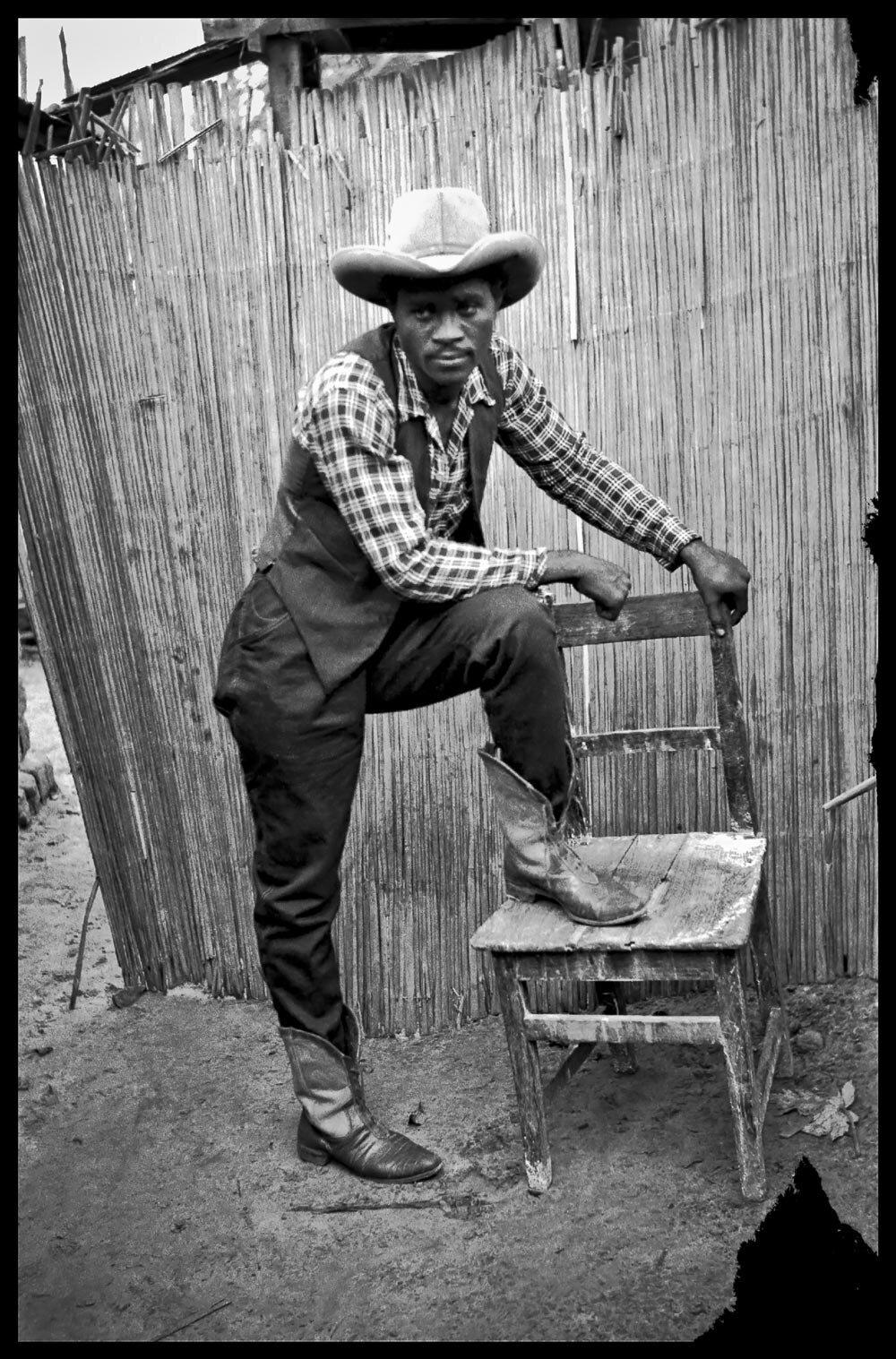
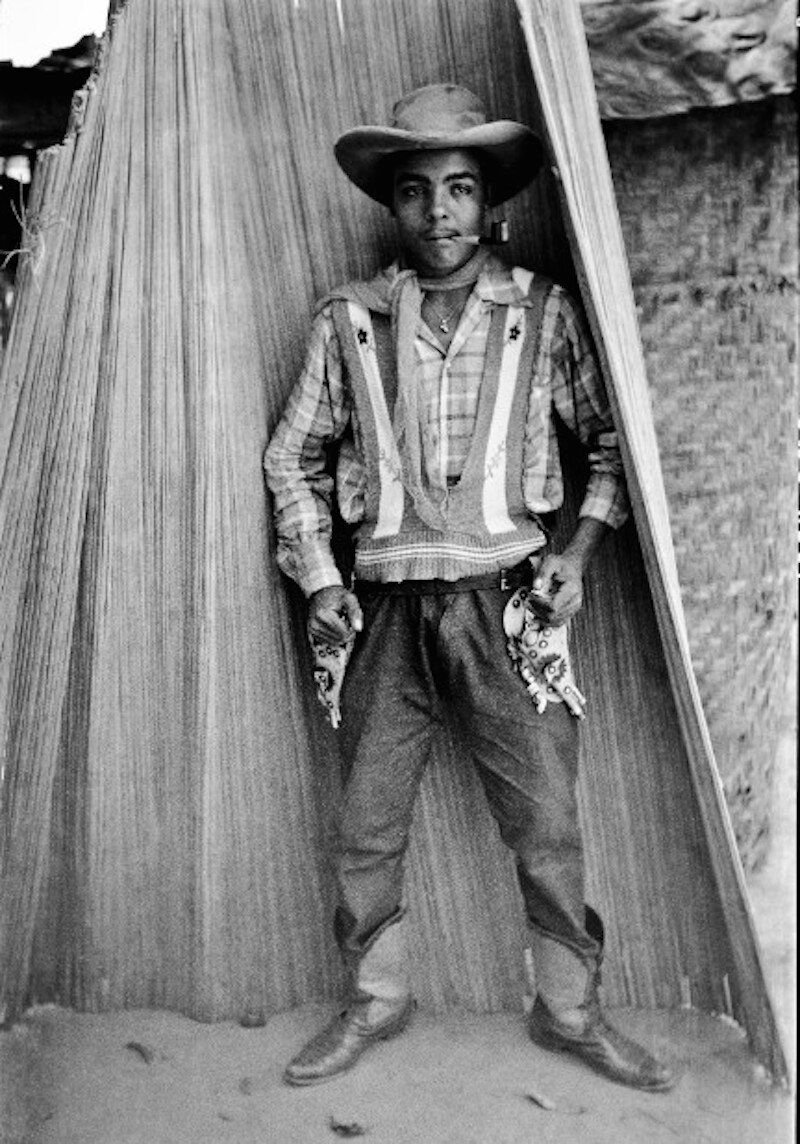
Bill and photographer Jean Depara made Kinshasa his canvas in the 1950s, capturing cowboys like Andrada in the urban neighborhoods they staunchly defended.
The portrayal of Buffalo Bill in the movies was especially appealing partly because of the similarity to hunter heroes of Congolese culture.
Soundtrack of the
AFRICAN COWBOY
For all their infamy, these gangs self-styled after cowboys occupy a unique place in Congo's history. Between January 4-6, 1959, riots broke out across the capital at a rally calling for independence. At the forefront were the Bills. "They took that spirit of insurrection and spread it all over the townships.
William Ezechukwu Onyeabor (/ɒnˈjɑːbɔː/, on-YAH-baw; 26 March 1946 – 16 January 2017) was a Nigerian funk musician and businessman. His music was widely heard in Nigeria in the late 1970s and early 1980s, but he remained an enigmatic figure, private and reclusive.
Onyeabor's songs are often heavily rhythmic and synthesized, occasionally epic in scope, with lyrics decrying war, sung by both Onyeabor himself and female backing vocalists. In the 2010s, some of his songs appeared on various compilations, most frequently his biggest hit, "Better Change Your Mind", which appeared on Africa 100, World Psychedelic Classics 3: Love's a Real Thing – The Funky Fuzzy Sounds of West Africa, and Nigeria 70: The Definitive Story of 1970's Funky Lagos, through labels such as Luaka Bop.
Autumn Winter 2017 LookBook
This lost subculture of 1950s Congo sets tone of Avec Ces Freres AW 17 from location,
style and philosophy of the collection.
